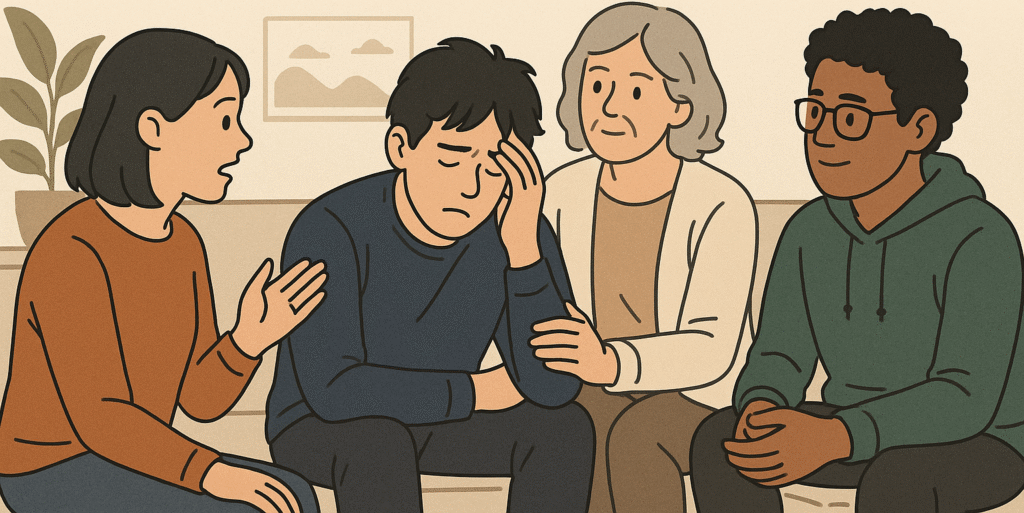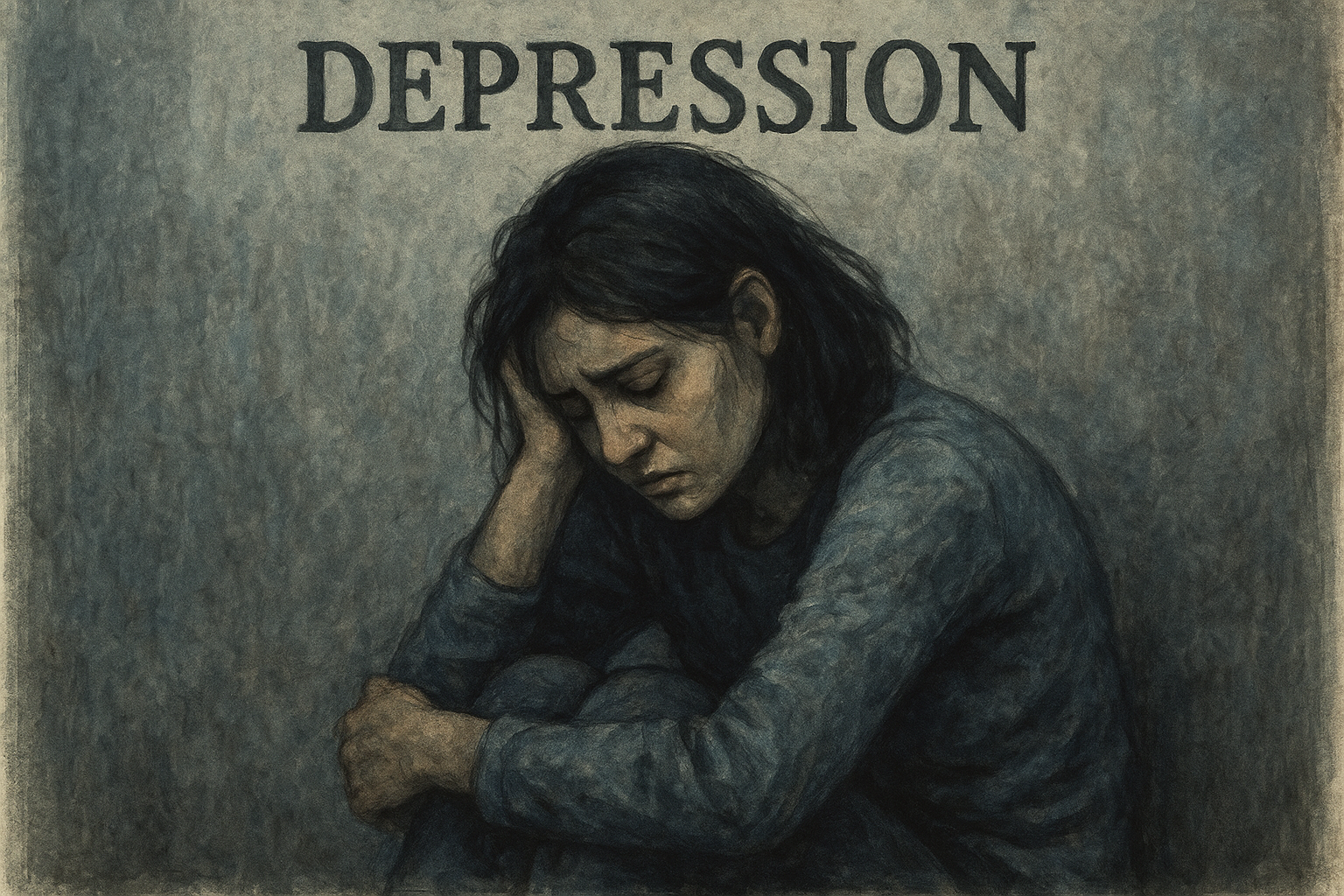Depression is a serious mental health disorder that goes far beyond occasional sadness or temporary emotional lows. It is a medical condition that affects the way a person thinks, feels, and behaves. People with depression often experience a persistent feeling of emptiness, hopelessness, or loss of interest in daily activities.
Unlike normal mood swings, depression lasts for weeks, months, or even years if untreated. It can affect relationships, work performance, physical health, and overall quality of life. In severe cases, depression can lead to thoughts of self-harm or suicide—making early recognition and treatment very important.
Symptoms of Depression
Symptoms of depression can vary between people. Common symptoms include:
- Persistent sadness or low mood
- Loss of interest in activities once enjoyed
- Fatigue or lack of energy
- Changes in appetite or weight
- Sleep problems (too little or too much)
- Feelings of guilt, hopelessness, or worthlessness
- Difficulty concentrating or making decisions
- Thoughts of self-harm or suicide
If suicidal thoughts occur, seek immediate professional help!
Causes and Risk Factors
Depression can result from a mix of biological, psychological, and social factors. Risk factors include:
- Family history of depression or other mental illnesses
- Stressful or traumatic life events
- Long-term medical conditions or chronic pain
- Substance abuse (alcohol, drugs)
- Hormonal changes, such as after childbirth (postpartum depression)
Diagnosis and Treatment
A mental health professional can diagnose depression through interviews and assessments. Treatment options include:
- Therapy: Such as cognitive behavioral therapy (CBT) or counseling.
- Medication: Antidepressants prescribed by a doctor.
- Lifestyle adjustments: Regular exercise, healthy diet, good sleep habits.
- Support networks: Talking to friends, family, or support groups.

When to See a Doctor
Seek medical help if:
- Symptoms last more than two weeks.
- Your daily life (work, study, relationships) is affected.
- You lose interest in normal activities.
- You have thoughts of harming yourself.
Frequently Asked Questions (FAQ) About Depression
- Is depression the same as sadness? No. Sadness is a normal emotion that passes with time. Depression is a medical condition where low mood and related symptoms last for weeks or longer.
- Can depression go away on its own? Mild episodes sometimes improve, but most cases need treatment. Professional support greatly improves recovery.
- Who is most at risk of depression? Anyone can develop depression, but it is more common in people with family history, stressful life events, chronic illness, or substance abuse.
- Can lifestyle changes help depression? Yes. Regular exercise, proper sleep, healthy diet, and reducing alcohol/drug use can support treatment and recovery.
- What is the first step if I think I have depression? The best step is to talk to a healthcare provider. They can evaluate your symptoms and guide you to appropriate therapy or medication.
Depression is common, serious, and treatable. Recognizing the symptoms early and seeking support can make a big difference in recovery and quality of life.
Disclaimer: This article is for informational purposes only. It is not a substitute for professional medical advice, diagnosis, or treatment. Always consult a qualified healthcare provider with any health concerns.
Source:
mayoclinic-depression: symptoms and causes
You may also interested in Meningitis: symptoms,causes and why its so concerning


[…] Diabetes: Symptoms and When to See a Doctor Depression: Symptoms, Causes, and When to Seek Help […]
[…] Depression: Symptoms causes and when to seek help […]